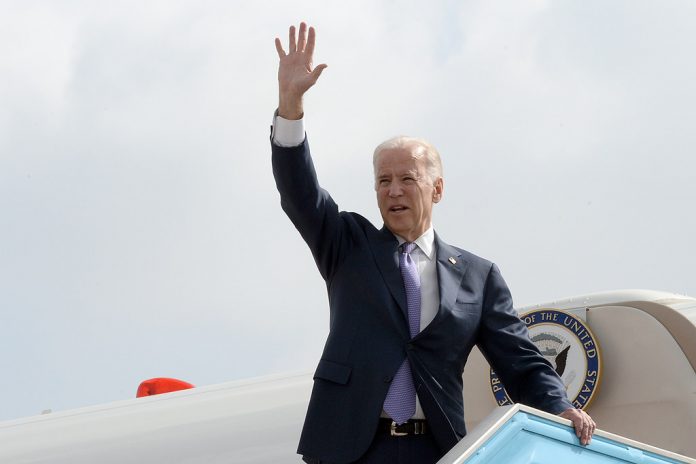
By Nima Hairy (a member of the Board of Directors at Young Professionals in Foreign Policy Europe and a member of the Belgian Liberal party Mouvement Réformateur (MR), writing in a personal capacity)
In 1807, American President Thomas Jefferson signed a bill banning all trade with Europe. This decision to impose an embargo may very well be judged as shocking and counterproductive, when looking through the prism of a modern-day liberal. Jefferson however argued that such an embargo was necessary to prevent a full out war with France and Britain, by stopping all contact with them, so that the policy of American neutrality in the war between France and Britain would be respected. This arguably cost him the presidency, and the ban was revoked immediately after his departure.
As the new American administration begins to settle in, they will be busy rethinking the policy decisions of the previous administration. Throughout the process, it is imperative that they keep in mind the historical context of trade between the two continents and the shared values that bind the two continents together.
Why so absent?
The U.S. has been lagging the rest of the world in trade for the past two decades, in effect slowly withdrawing from the international economy. By only signing trade agreements with small economies, it has not taken any tangible steps in liberalizing the American economy.
Meanwhile, Europe, and the rest of the world for that matter, took major strides in increasing trade. On the international stage, the United States has also been absent from global economic integration. This paved the way for China to step in and fill the gap by introducing its Belt and Road initiative.
Perhaps the goal to save jobs was the main motivation for the American protectionist stance, but this is short-sighted, as it did not consider the potential long term catch-up effect of economies like the Chinese. Furthermore, as other economies grow and learn to trade in the absence of an omnipresent US economy, trade tactics such as tariffs and embargos become obsolete and weaken America’s economic advantage.
Reducing protectionism
At times, the European Union has struggled to liberalize its economy, as it had to deal with several political crises at the same time. From having to answer existential questions when it comes to the European project, to having to deal with an economic recession that threatened to turn into a depression: Europe really has had its hand full for quite a while.
Yet, while managing to avoid instinctive protectionism, the EU managed to sign crucial trade deals, while continuing to integrate the economies of its member states – in effect developing the largest single market area in the world.
From 1999 to 2010, the EU managed to double foreign trade, which has now reached 30% of its gross domestic product (GDP). Yet Europe cannot ignore that to open up further, there is a looming threat of China and the US launching their arsenal of trade weapons. For this reason, a trade deal between the EU and the US is needed. This can incentivize economic collaboration, making trade-hostile behavior much less likely, while at the same time countering global Chinese economic dominance. Such a trade deal would also pave the way for reform of the W.T.O., which would help to tackle Chinese protectionism more firmly.
Steeling the trade spotlight
To be fair, it’s not for a lack of trying that there is no trade agreement between the E.U. and the U.S. Both parties did try in good faith to negotiate a trade deal already, but the so-called Transatlantic Trade and Investment Partnership (TTIP) eventually did not succeed in 2016. Since then, the imposition of tariffs by President Trump on the EU on products like steel and aluminum further added salt to injury.
After the change of leadership in the United States, President Biden has now pledged to unwind much of those tariffs. The Europeans are eagerly waiting to see if the American administration will walk the talk.
However, that will not be enough to revive the transatlantic trade agenda. Both parties will also need to learn from the failure of the TTIP agreement, so to not let history repeat itself.
Scope, public engagement, and communication have been named as the main reasons for the failure of TTIP.
- TTIP’s scope was too ambitious, leaving too much room for disagreement. The European Union itself was created while only focusing first on opening up coal and steel markets. Perhaps the EU and the U.S. could now also first identity areas where there is an obvious shared interest to open up trade
- the TTIP negotiation process was also not properly communicated with the public, something which fueled opposition by voters wary of being left in the dark. This caused politicians facing enormous pressure, often also leading them to abandon their initial support of the deal.
To achieve any success, these things will need to be kept in mind.
A new basis
There is good reason to be hopeful about the chance for an EU-US deal to emerge. With failure, comes wisdom. There is an opportunity for both sides to learn from their past mistakes, and to take away best practices to push forward for a new EU-US trade deal.
President Biden, a member of the oldest voter-based political party in the world, is visiting Brussels today, when at the same time the Belgian liberals are celebrating their 175th anniversary as the oldest party on continental Europe.
At the Summit with his European counterparts, the topic of a reset of the transatlantic alliance will surely be discussed. The Europeans are still grudging over being treated as junior partners during TTIP negotiations and will insist that if a new deal were to be negotiated, they would need to be treated on an equal basis.
This should not be viewed as an impediment, but as an opportunity. With so many liberals sitting around the table, they should avoid repeating Thomas Jefferson’s mistake on US-EU trade, and instead restart efforts to agree a transatlantic trade deal.
References :
https://www.wsj.com/articles/the-founding-liberal-and-the-founding-conservative-1507905412
https://learningenglish.voanews.com/a/jefferson-impressment-embargo/1665733.html
https://www.atlanticcouncil.org/event/relaunching-the-transatlantic-trade-agenda/
https://www.atlanticcouncil.org/in-depth-research-reports/issue-brief/relaunching-the-transatlantic-trade-agenda-a-european-perspective-3/
The Price of Nostalgia, Adam S. Posen, Foreign Affairs, May & June 2021
Disclaimer: www.BrusselsReport.eu will under no circumstance be held legally responsible or liable for the content of any article appearing on the website, as only the author of an article is legally responsible for that, also in accordance with the terms of use.












